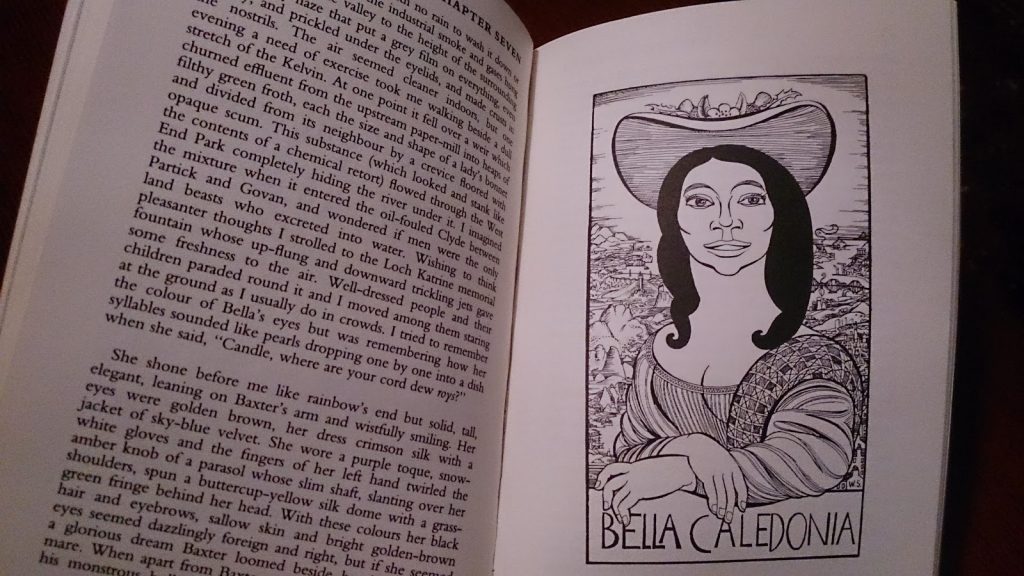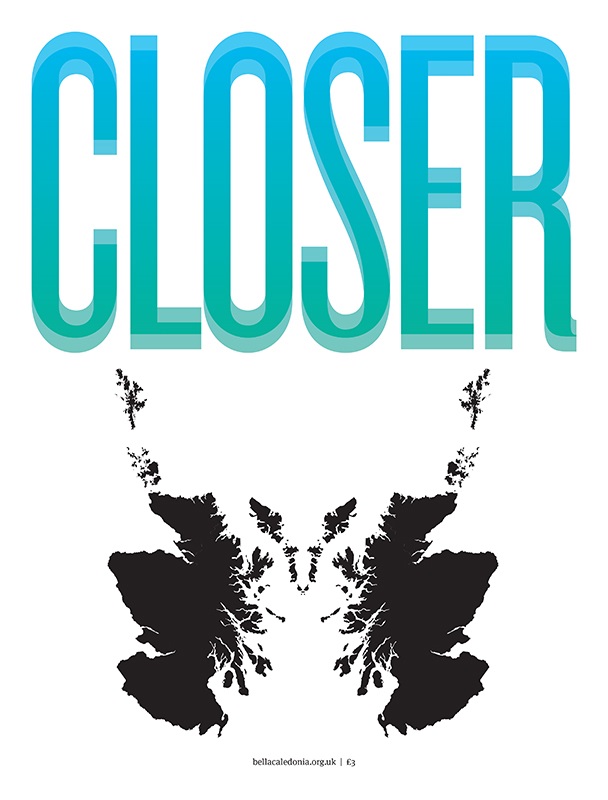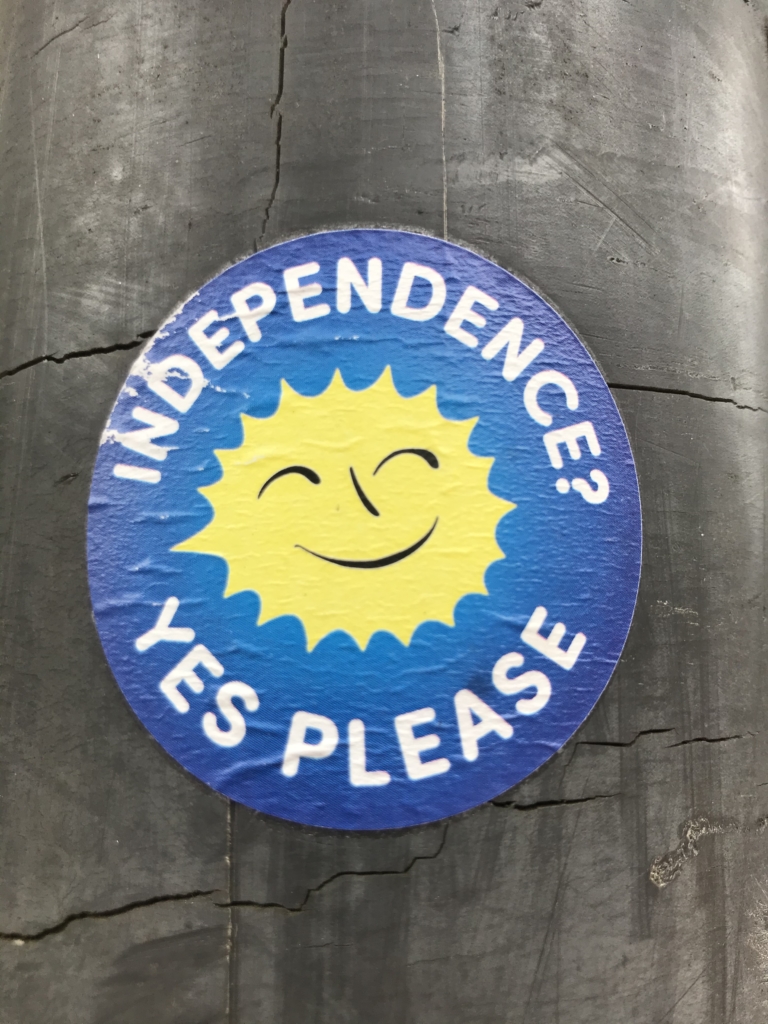- Arts & Culture
Arts & Culture
- Opinion
- Media
- International
International
- Economics
- Politics
Politics
- All articles
Bella Caledonia was formed in 2007 by Mike Small and Kevin Williamson as an online magazine combining political and cultural commentary. Bella is named after a character in Alasdair Gray’s Poor Things (1992). Like Bella we are looking for a publication and a movement that is innocent, vigorous and insatiably curious. Bella is aligned to no one and sees herself as the bastard child of parent publications too good for this world, from Calgacus to Red Herring, from Harpies & Quines to the Black Dwarf.
Poor Things is a remarkable book. Presented as the memoir of Dr Archibald McCandless, it describes his life and that of a colleague – Godwin Baxter. A monstrous proto-Frankenstein, Baxter performs surgical marvels, his greatest achievement being the (re) creation of life: he brings to life a drowned woman by transplanting the brain of the foetus she is carrying. The full-grown woman with the infant’s mind, is Bella.
In Gray’s story Bella is a metaphor for a nation. As Kirsten Sterling tells us in (“Scotland Deformed?”):
“The label “Bella Caledonia” below the portrait of the main character on p. 45 of Alasdair Gray’s Poor Things (1992) – suggests that Gray wants us to read the character Bella Baxter as a female personification of the Scottish nation, in same tradition as Britannia or France’s Marianne. Bella’s “tall, beautiful and full-bodied” exterior would seem to qualify her for the statuesque role of national figurehead, and her external integrity and beauty form the shell that contains the essence of the nation and the political structures of the state. She sits, with a plaid over one shoulder and thistles on her hat, in a recognisably Scottish landscape (we see the Forth Bridge over her right shoulder). However, since the Frankenstein-like narrative of Poor Things tells us that Bella has literally been constructed by Dr Godwin Baxter, it seems that beneath her elegant exterior this personification of Scotland must be in some way monstrous.”

In Why Scots Should Rule Scotland (1992), Gray proposed a possible female figurehead to represent Scotland:
“Since the 18th century sculptors and political cartoonists have often represented nations as single people, usually robust and beautiful women with names like La France, Italia, Germania. If Scotland were so depicted the head would have to be shown attached to the body by a longer neck than the poor lady’s height; moreover the head would also be attached by a neck of normal length to a different and much stronger body. No wonder many Scottish limbs and organs are underfed, numb and disconnected from each other. Too many of them cannot act without orders from a remote head which is distinctly absent-minded toward them because it must first direct a far more urgent set of limbs and organs.” (58-59)
Our original masthead and font was designed by Alasdair Gray, with the (possibly over-optimistic) slogan ‘fresh thinking for the new republic’. The site was re-designed by Dave Murphy in 2015.
We’ve tried to develop what some have called the ‘Fifth Estate’ as a way of disrupting the passive relationship of old media and creating something more active and appropriate for the 21C:
“The Fifth Estate is a socio-cultural reference to groupings of outlier viewpoints in contemporary society, and is most associated with bloggers, journalists publishing in non-mainstream media outlets, and the social media or “social license” . The “Fifth” Estate extends the sequence of the three classical Estates of the Realm and the preceding Fourth Estate, essentially the mainstream press. The use of “fifth estate” dates to the 1960s counterculture, and in particular the influential The Fifth Estate, an underground newspaper first published in Detroit in 1965. Web-based technologies have enhanced the scope and power of the Fifth Estate far beyond the modest and boutique conditions of its beginnings.
Nimmo and Combs assert that political pundits constitute a Fifth Estate. Media researcher Stephen D. Cooper argues that bloggers are the Fifth Estate. William Dutton has argued that the Fifth Estate is not simply the blogging community, nor an extension of the media, but ‘networked individuals’ enabled by the Internet, i.e. social media, in ways that can hold the other estates accountable.
Making reference to the medieval concept of “three estates of the realm“ (clergy, nobility and commoners) and to a more recently developed model of “four estates“, which encompasses the media, Nayef Al-Rodhan introduces the weblogs (blogs) as a “fifth estate of the realm”. Blogs have potential and real influence on contemporary policymaking, especially in the context of elections, reporting from conflict zones, and raising dissent over corporate or congressional policies. Based on these observations, Al-Rodhan suggests moving beyond traditional thinking that limits the “estates of the realm” to governmental action and proposes a broader perspective in which civilians or anyone with access to a computer and the Internet can contribute to the global political change and security.“
In 2020 we launched the Many Voices project, a funded year-long project to offer extensive time for people to take up residency as commissioning editors. This was an experiment in expanding the diversity of the publication and in doing so exploring the challenges of changing the media.
Commissioning Editor – Anahit Behrooz
Commissioning Editor – Arusa Qureshi
Commissioning Editor – Luke Campbell
Commissioning Editor – Raman Mundair
Commissioning Editor – Sean Wai Keung
Commissioning Editor – Tomiwa Folorunso
Commissioning Editor – Zozan Yasar
Following the dictum ‘don’t hate the media become the media’ – you can write for us – share us – support us. We are open to submissions and collaborations – our whole purpose is to create a platform for new writers, artists, filmmakers (etc)
See our Contributors section for more detail.

We publish in three languages, having started our Gaelic and Scots language columns in 2014.
We produced four issues of a print magazine called Closer. You can download a copy here – or we can send you a printed copy. We launched the magazine at our After Party in 2013.
In collaboration with a Catalan publisher Pol-len Edicions, we published ‘‘Building a New Catalonia: Self-Determination and Emancipation’ edited by David Whyte and Igansi Bernat.
We have also published a book ‘Scotland 2021’ in collaboration with Ekklesia, edited by Simon Barrow and Mike Small. In forty chapters we explore practical radical innovation and policy challenges with contributions from Irvine Welsh, Joyce McMillan, Maggie Chapman, Kathy Galloway, Tom French, Vonny Moyes, Anuj Kapilashrami, Niamh Webster, Michael Marten, Milja Radovic, Talat Yaqoob, Jan Bebbington, Adam Ramsay and dozens more.
More details here.

We’re not aligned to any one political party but believe in self-determination for Scotland. Only then will a country disfigured by poverty and inequality be re-born. Only independence can bring democracy. The British State is irredeemable and is structurally corrupt, broken and riven with hierarchy.
After the independence referendum we remain in a liminal state – somewhere between a confusing ‘here’ and an unknown ‘there’. After 2014 – there was frustration, anger but very little despair. In losing we won and reinvented ourselves, but that process – to define and re-imagine ourselves is ongoing and incomplete.
There’s room to be positive
A fractured, discredited print media, a London government that appears like a throwback to the Edwardian era, and the catastrophic failure of political parties to create a compelling narrative have combined to produce an ongoing political uncertainty that is ripe with potential.
All this on top of twenty years of cultural renewal and a growing sense of, if not confidence, declining self-hatred. In a post-ideological world, the idea of starting a nation ‘afresh’ seems compelling.
We believe that renewing, reclaiming and re-imagining the media is a key part of the democratic revolution that’s taking hold in Scotland and beyond.
We don’t take any advertising, we don’t hide behind a pay wall and we don’t keep harassing you for crowd-funding. We’re entirely dependent on our readers to support us.
Don’t miss a single article. Enter your email address on our subscribe page by clicking the button below. It is completely free and you can easily unsubscribe at any time.